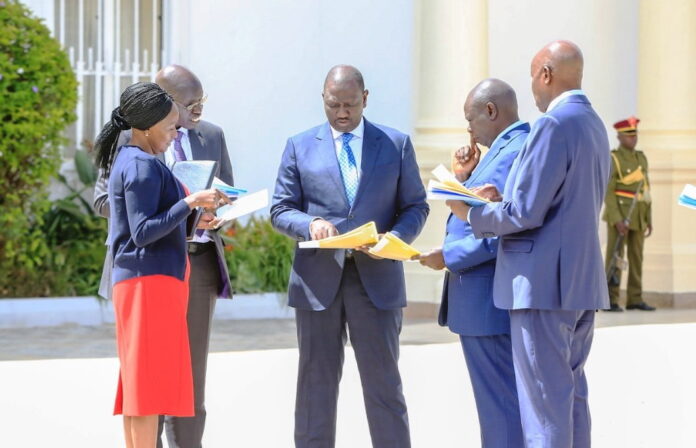Introduction:
Education reform in Kenya is poised for significant transformation, as the Ministry of Education (MoE) invites public engagement to shape the implementation of key policy initiatives and legislative proposals. Led by Education Cabinet Secretary Ezekiel Machogu, this call for written memoranda underscores the government’s commitment to inclusive governance and collaborative decision-making in the pursuit of sustainable development in the education sector.
Quick Summary:
- MoE invites public input on draft Sessional Paper and Bills aimed at realizing recommendations from the Presidential Working Party on Education Reforms (PWPER).
- Proposed reforms include the adoption of a 2-6-3-3-3 education structure and the establishment of a comprehensive school system.
- Various Bills covering basic education, scholarships, vocational training, and curriculum development are open for public feedback until March 15, 2024.
Embracing Comprehensive Reform:
The draft Sessional Paper on Transforming Education, Training, and Research for Sustainable Development in Kenya signals a paradigm shift in education governance. By advocating for a unified approach to managing all levels of learning, from pre-primary to grade nine, the government aims to enhance accountability and optimize resource allocation in basic education institutions.
Strengthening Accountability Mechanisms:
One of the key objectives of the proposed reforms is to address challenges related to the management of capitation funds for Free Primary Education (FPE) and Free Day Secondary Education (FDSE). The establishment of a comprehensive school system seeks to streamline governance structures and ensure effective oversight, thereby safeguarding public resources from misappropriation.
Legislative Framework:
In tandem with the Sessional Paper, a suite of Bills has been drafted to operationalize the proposed reforms comprehensively. These Bills encompass various aspects of education, including basic education, scholarships, curriculum development, vocational training, and quality assurance. Through targeted legislative interventions, the government aims to modernize the education sector and align it with contemporary needs and global standards.
Call to Action:
Education CS Ezekiel Machogu extends an open invitation to stakeholders and members of the public to contribute to the ongoing reform process. Until March 15, 2024, individuals and organizations are encouraged to submit written memoranda outlining their perspectives and recommendations on the proposed policy and legislative initiatives. This inclusive approach to decision-making ensures that diverse voices are heard and that the resulting reforms reflect the collective aspirations of the Kenyan populace.
Upholding Constitutional Values:
The call for public participation resonates with the principles of democracy and transparency enshrined in the Kenyan Constitution. By soliciting input from citizens, the government demonstrates its commitment to accountable governance and citizen-centric policymaking. Through active engagement with stakeholders, the education sector can evolve in a manner that is responsive to the needs and aspirations of the Kenyan people.
Potential Impact:
The success of education reform in Kenya hinges on the active involvement of all stakeholders, from policymakers to grassroots communities. By harnessing the collective wisdom and expertise of diverse voices, the government can formulate policies and enact legislation that catalyze positive change and drive inclusive growth.
